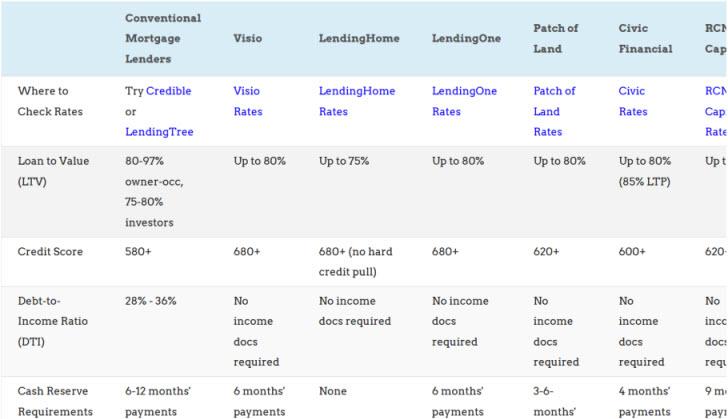
Sure, it’s easier to sell your home or investment property as-is. But you can also expect a lower sales price, and usually a lower profit. Learn how much you can lose selling a house as-is.
There are plenty of reasons to sell your home quickly. Maybe you inherited a property from a loved one who died, or maybe the home needs a lot more repairs than you can afford. Sometimes, it’s just easier to sell your property as-is. But is it a good idea? Regardless of your reasons, you probably want to know the bottom line: how much do you lose selling a home as-is?
What Does It Mean to Sell a Home “As-Is?”
Selling an as-is home means you’re selling it with the understanding that you won’t make any repairs or improvements to the home.
“What you see is what you get,” said Sarah Pickard, a real estate agent at Realty One Group Coastal. “Typically, you will see a seller advertise their home ‘as-is’ if they do not have the funds to complete repairs or the home is in total disrepair. They are marketing to investors looking to update the property.”
This means buyers accept the home as they see it, which is different from a traditional sale. Usually, buyers view potential properties and, with the help of a home inspection, ask the seller to make repairs or adjustments before buying the home. Sometimes sellers make these changes, especially if they want to sell their home for the listed price. But selling a home as-is means getting it as you see it—defects and all.
Keep in mind that “a seller is never compelled to make repairs or improvements to their home,” explains Bill Gassett, realtor and owner of Maximum Real Estate Exposure. “Advertising in this fashion screams to a buyer that there may be underlying problems with the house. Some buyers may even avoid seeing it if they are looking for a turnkey home, thinking there are untold issues. The majority of the time it does not make sense to advertise you home as an “as-is property.”
How Much Do You Lose Selling a Property As-Is?
In most cases, selling a home as-is means you shouldn’t expect top dollar for it. You won’t get the maximum amount your neighbor got after making major renovations and improvements to their home. Those repairs may have been expensive with several upfront costs, but they also boost the property value.
Selling a home as-is could even result in losing money on a sale. You may find that fewer buyers are as interested in buying a fixer-upper.
“Homes face wear and tear throughout the years, so it’s pretty likely any home for sale needs some repairs to meet the buyer’s standards,” Pickard said. “A home will often need to be purchased via cash offer or conventional loan because FHA, VA and USDA loans do not allow a buyer to buy a home that is unsafe and unlivable.”
Because buyers need to put money into repairs, they can lowball their offers. Pickard estimates that selling a home as-is could result in losing around 25% of the listed price. Sellers who make some repairs and improvements can expect to lose far less, if anything.
But you can also earn more than the listing price in some places. Hot housing markets can drastically increase what a buyer pays. In 2021-2022, 52% of homes in the US sold for above the asking price, according to Redfin.
Not everyone lives in hot housing markets. If you’re listing a home as-is in a cold real estate market, keep in mind you could lose some of its value.
(article continues below)
Selling a House As-Is By Owner
If you’re planning to sell your home as-is, you might hire a real estate agent to help you with the sale. But you may sell your home as-is without an agent’s assistance.
Even though using an agent to buy or sell a home is not required, having one could drastically increase your chances of getting as close to your desired price as possible.
You might want to skip out on selling your home as-is with an agent and instead sell it by owner if:
-
- You’ve sold real estate or are an agent yourself, so there’s no need to enlist the extra help.
- You want to pocket the agent fee when the sale goes through.
- You don’t plan to negotiate with potential buyers about any details of your home, so you don’t need an agent to act as the liaison between both parties.
- You can handle listing, publication, marketing and sale of your home without help.
Sell a Property As-Is or Fix It Up?
How you sell your home depends on your timeline and finances. If you have the time and money to devote to fixing up your home to be up to the latest code regulations and appeal to potential buyers, you could earn more money on the sale.
“As we see a market shift and head towards a more stable market, more buyers are opting out of purchasing a home ‘as-is,’ so it might be wise for a seller to consider making repairs,” Pickard said. “Sellers are legally obligated to share any adverse facts about the property with the public. This allows the buyer to choose if they want to take that risk or not.”
The decision to sell a house as-is or fix it up ultimately comes down to your priorities, and on your local housing market. Consider the pros and cons carefully for you personally, and your real estate market.
Selling a House As-Is Pros & Cons
There are upsides to selling a home as-is, but there are some downsides as well.
Pros
-
- Quick listing: If you decided to sell your home as-is, you don’t have to spend time making repairs, improvements or renovations. You can take pictures and list the home immediately as it is.
- Fewer out-of-pocket costs: Selling a home as-is means you don’t have to pay for improvements or repairs to sell the home.
- Fast sale: If there isn’t any negotiation on home repairs or updates, you could find a buyer and sell your home much faster than a sale with negotiations. As-is sales tend to attract investors more than buyers looking to make the home a primary residence.
Cons
-
- Riskier sale: Buyers who see “as-is” might be more cautious about buying that home. Potential buyers might be unable to stomach the idea of paying for major renovations after purchasing a home because they weren’t aware of the issues. While home inspections can bring up a lot of the needs of a home, they aren’t bound to find every problem.
- Lower earnings: If you don’t own your home outright, you could sell it for much less than what you bought it for, depending on its current condition.
- Fewer offers: You might find fewer people put in offers on homes listed as-is because of the possibility the home might have more work than potential buyers can afford.
Bottom line
If you consider selling your home as-is, make sure you understand the risks of doing so. You could lose much more money than someone who makes and manages necessary repairs and improvements. Even though you could sell your house faster, you might consider taking this route only if it is not a major financial risk.♦
What have your experiences been buying or selling homes as-is? How much have you saved or lost?
More Real Estate Reads:
This article originally appeared on Ownerly.com and is republished here with the author’s permission.


























Something to ponder before selling our old house that’s full of old memories for us, but not super polished to potential buyers
Absolutely Yahiko. There’s no right or wrong answer, but pros and cons either way.
My pen was inches close to sign the deal for a house as-is that had a contaminated basement! It was not disclosed until the home inspector informed me just in time! I almost lost a thousand. Do your due diligence on buying house as-is.
Glad you caught the problem before closing M.!
Thanks for the tips!
Glad they were helpful Maggi 🙂
I would rather be creative on financing. Selling-as-is is a desperate move. I don’t see a good profit out of it. Please correct me if I am wrong.